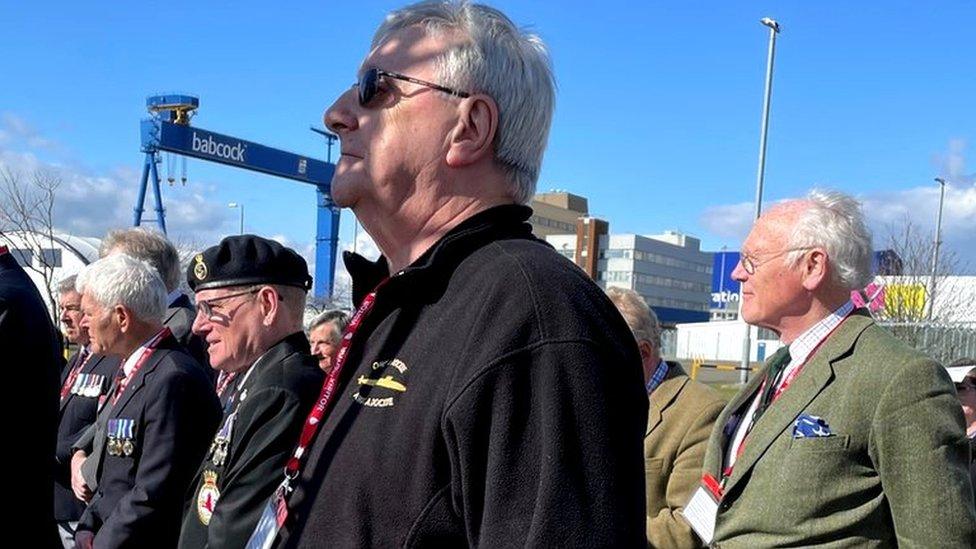Falklands War: Scottish veterans pictured on 40th anniversary
- Published
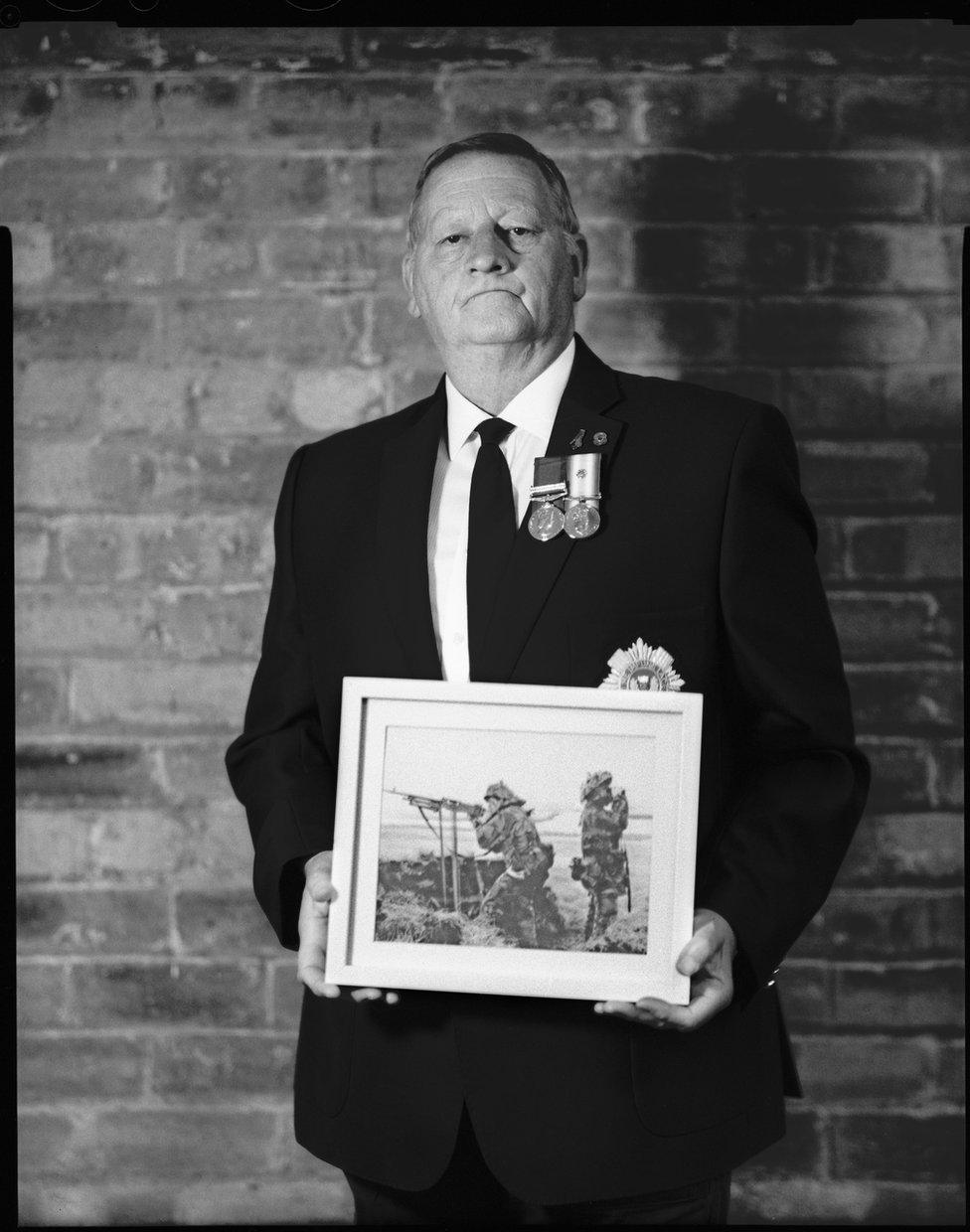
Willie Urban joined the Scots Guards after leaving school, and served for 22 years
New photographs of Scottish veterans of the Falklands War have been released to mark 40 years since the end of the conflict.
Images of seven men who served in the 10-week war have been taken by Glasgow photographer Wattie Cheung.
They feature in an online exhibition, external ahead of a national remembrance parade and service in Edinburgh on Saturday.
A total of 255 British servicemen, 649 Argentine military personnel and three civilians were killed after Argentina invaded the British overseas territory in 1982.
"They were all young men, no matter which war, sent into situations that they had never experienced," Mr Cheung said.
"I don't think they see themselves as heroes but just ordinary men in extraordinary circumstances doing a job they were trained to do."
Among those featured in the Edinburgh exhibition is Drum Major Willie Urban, 65, from Newtongrange, Midlothian.
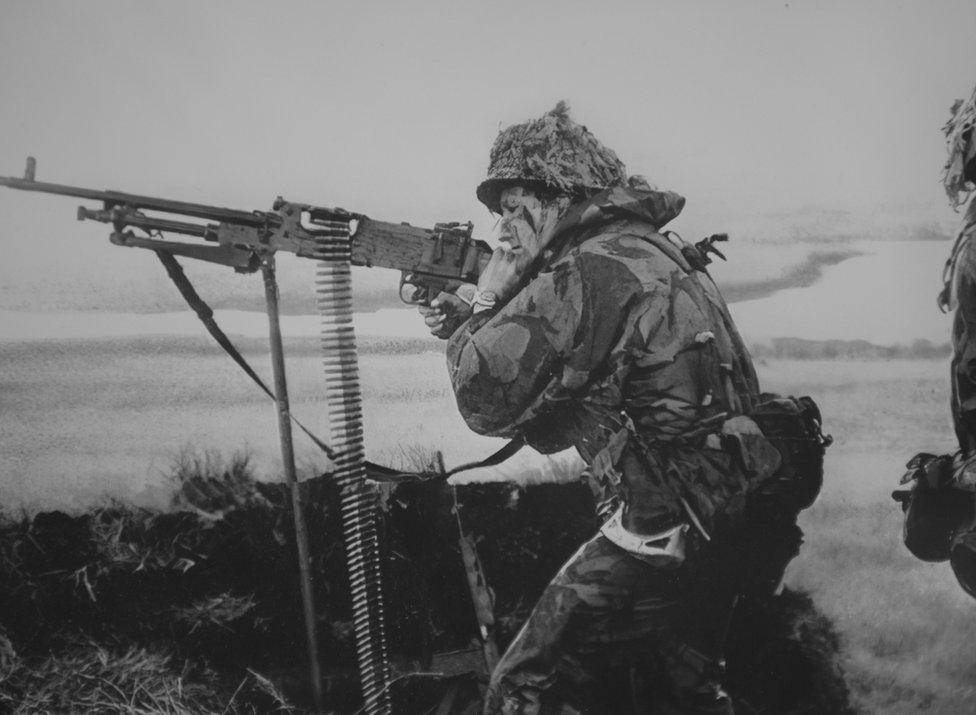
Drum Major Willie Urban sailed to the Falklands on board the QE2
He joined the Scots Guards when he left school as he "didn't want to go in the pits" like his father.
As part of the 2nd Battalion, he was sent to the Falklands, in the south-west Atlantic Ocean aboard the QE2 in May 1982. The luxury liner had been requisitioned for troop transport.
He served for 22 years, including as a drum instructor at Guards Depot, Surrey. He returned to live in Newtongrange with his wife, and now works in Lady Haig's Poppy Factory in Edinburgh
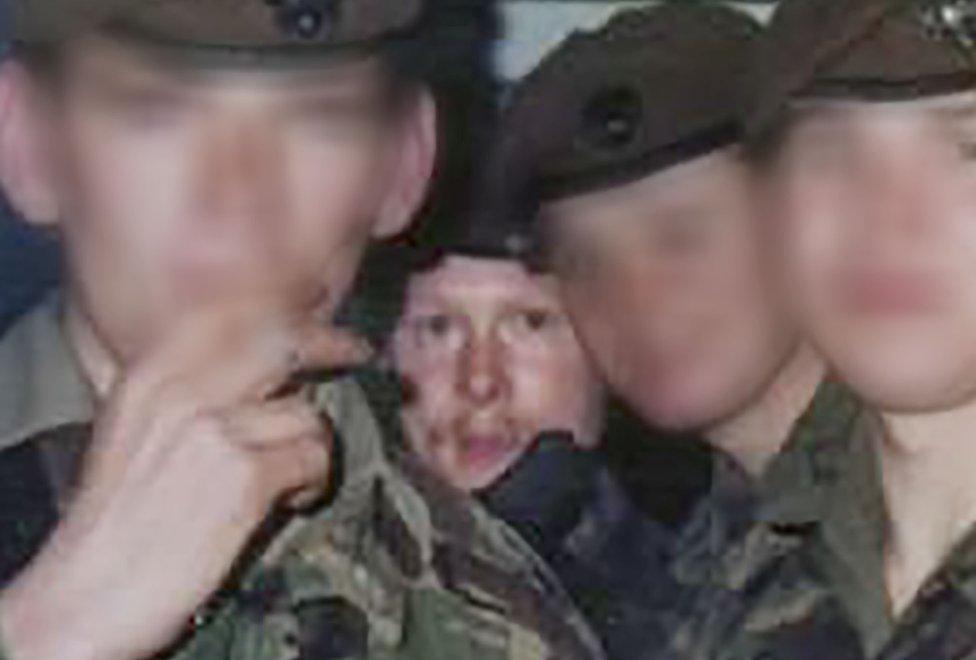
Graham Hopewell was inspired to join the Scots Guards after watching their band play
Graham Hopewell, 59, originally from Glasgow, was inspired to join the Scots Guards as a teenager drummer after seeing their band play for the Queen's Silver Jubilee.
He was sent to the Falklands as part of 5 Infantry Brigade aboard the QE2 and remembers bitterly cold conditions and barren landscapes reminiscent of the Scottish Highlands.
Graham stayed in the Scots Guards for nearly 24 years, moving to the Transport Platoon, and being promoted to a Corporal.
He now lives in Ayrshire with his wife and works as an undertaker.
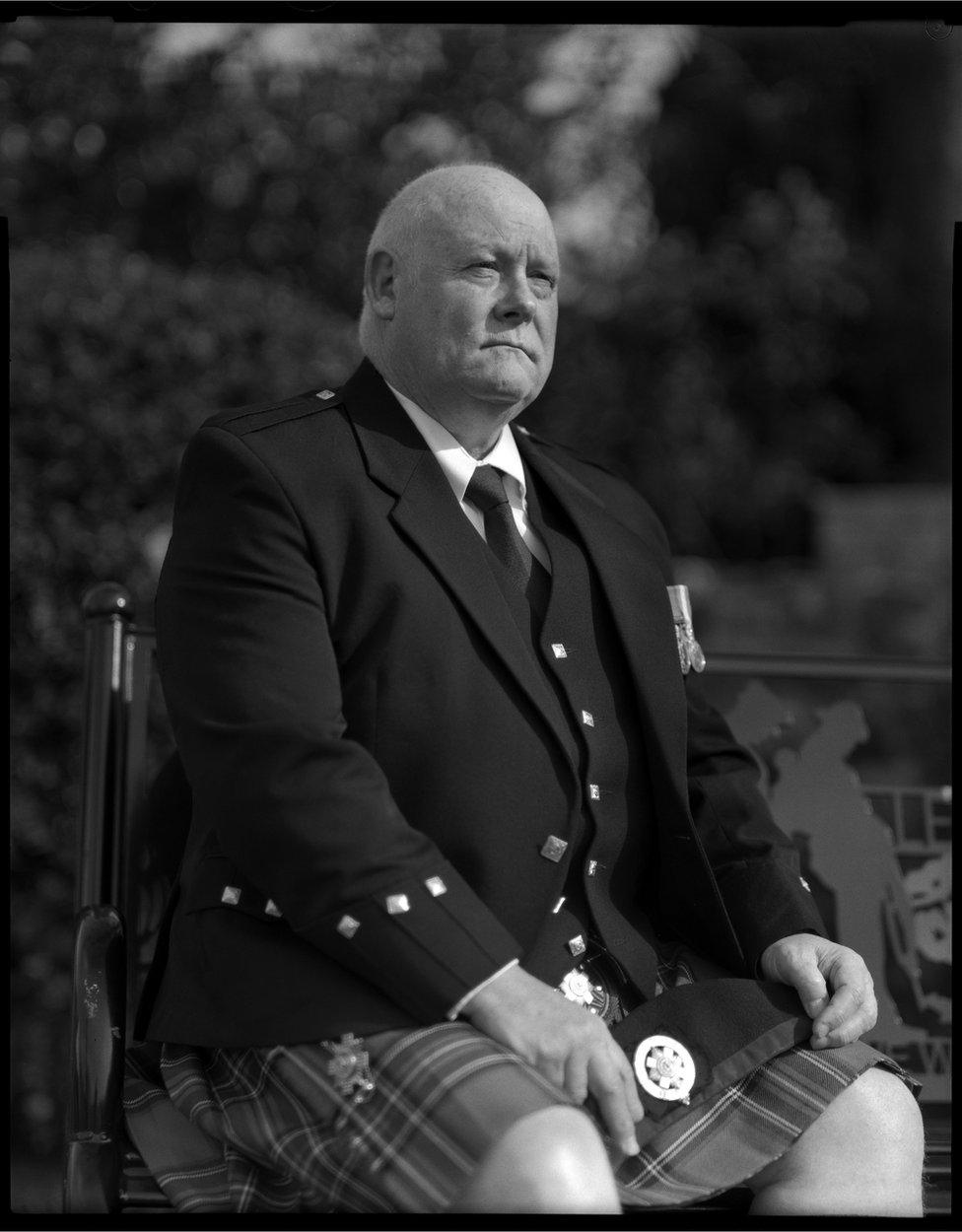
He is now an undertaker in Ayrshire
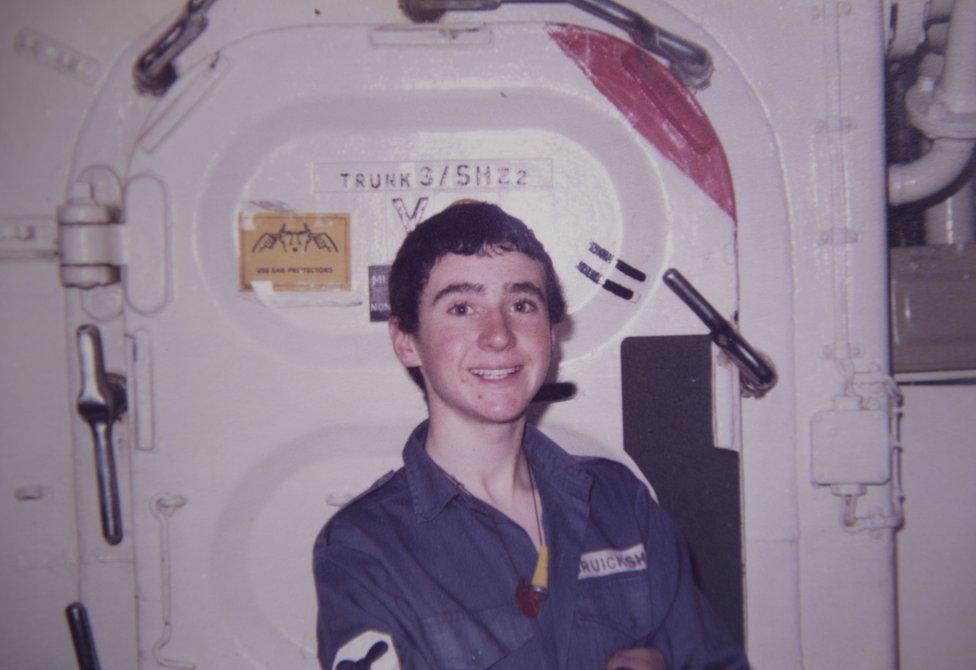
At 17, David Cruickshanks was the youngest Scot to serve in Falklands
David Cruickshanks, from Glenrothes, Fife, was the youngest Scot to serve in the Falklands.
Shortly after signing up with the Royal Navy, he was asked to join HMS Fearless at the last minute after another crew member fell ill.
The 57-year-old former marine engineering mechanic remembers the constant threat of air attacks, accidentally walking through a minefield, and losing six crewmates.
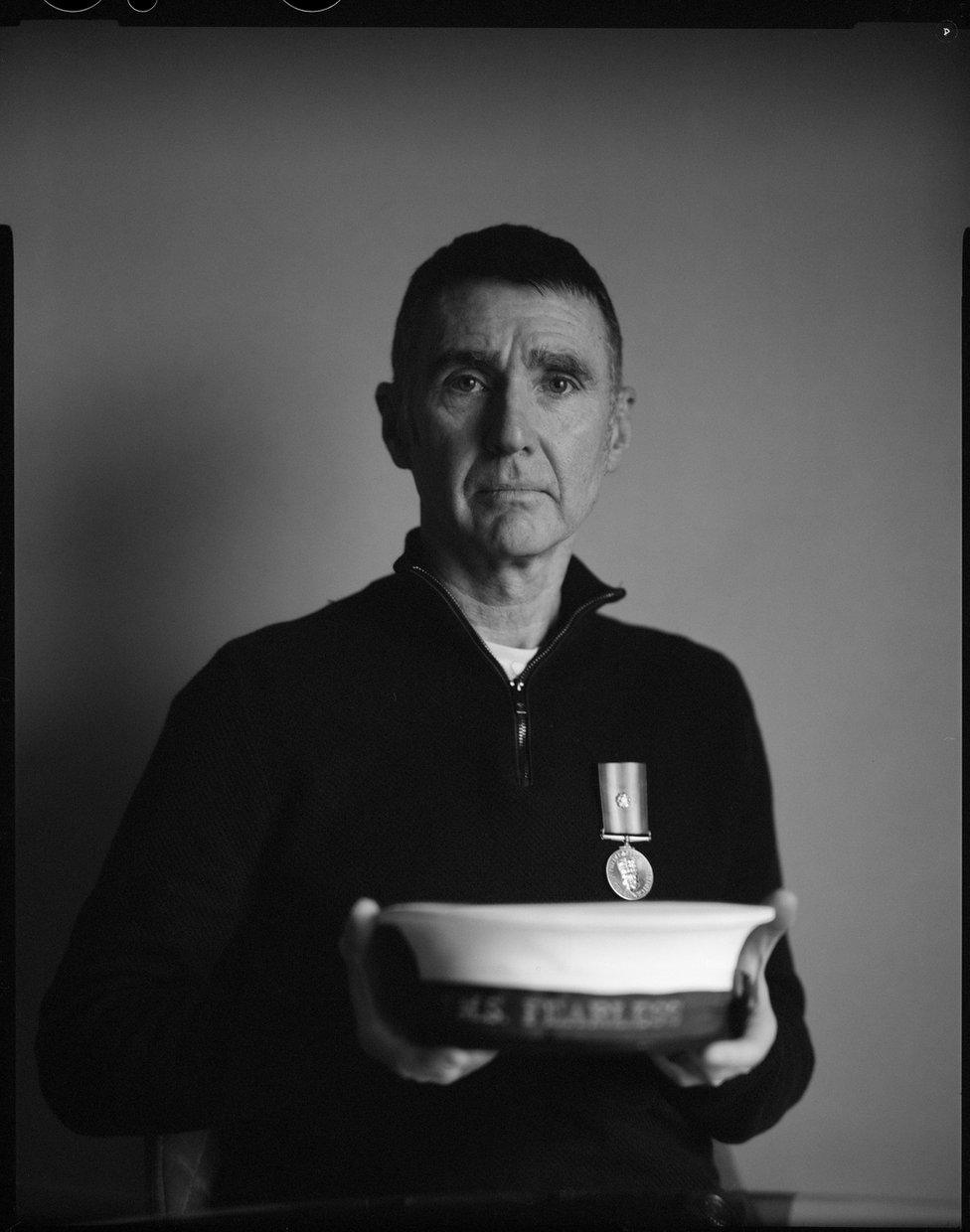
He lost six crewmates in the conflict.
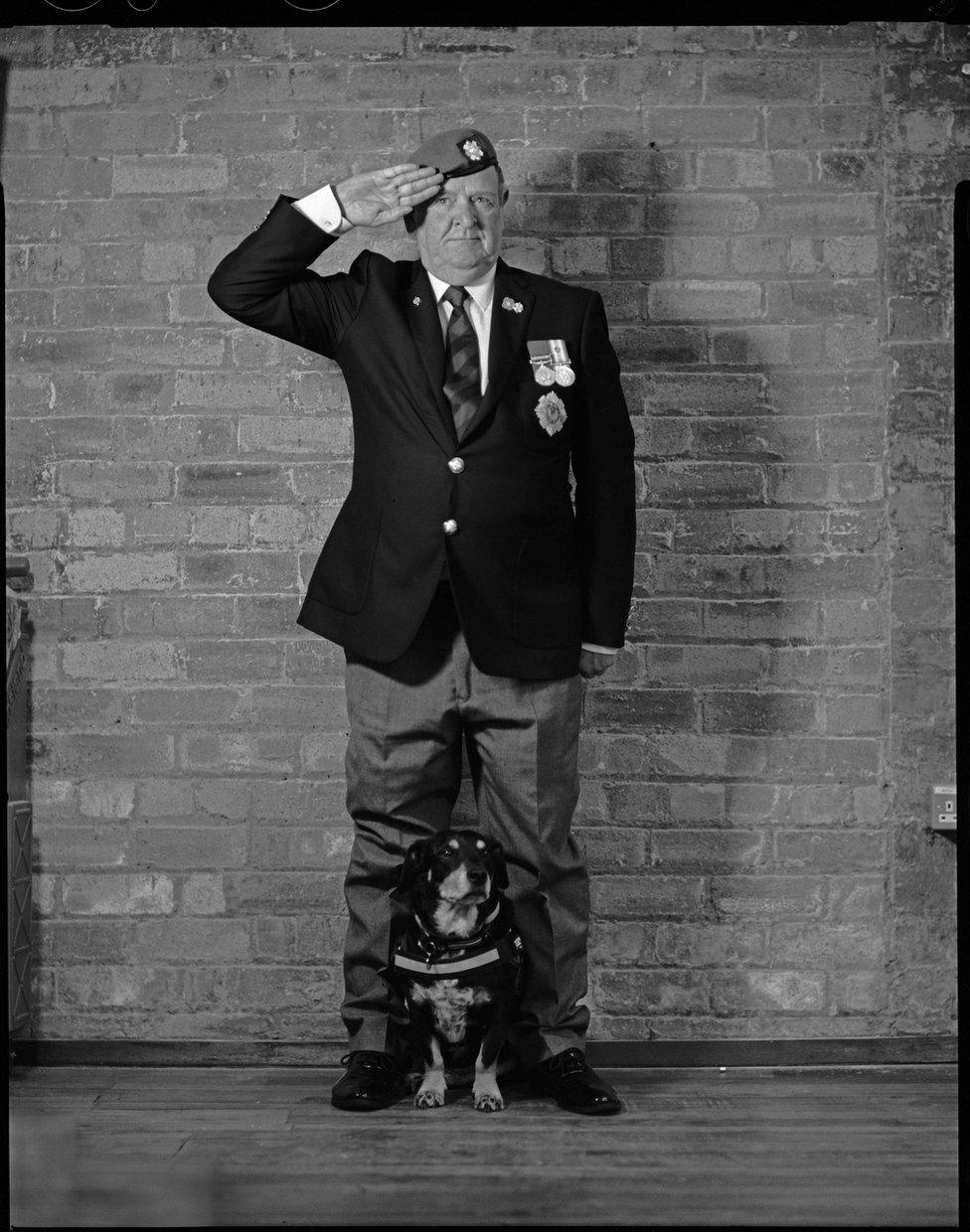
Donald McLeod struggled with post-traumatic stress disorder after leaving the army
Donald McLeod, 63, joined the Scots Guards when he was 19.
He was carrying out public duties in London, when they were told to prepare to sail for the Falklands.
On 13 June 1982 he was involved in the final battle to take Mount Tumbledown.
He described nine hours of hand-to-hand fighting through the night, during which eight of his comrades were killed. Argentina surrendered the following day.
Mr McLeod struggled with post-traumatic stress disorder after leaving the Army several years later, but managed to turn his life around with help from Poppyscotland and other charities.
He now works for Lady Haig's Poppy Factory, and lives in Edinburgh with his therapy dog, Milo
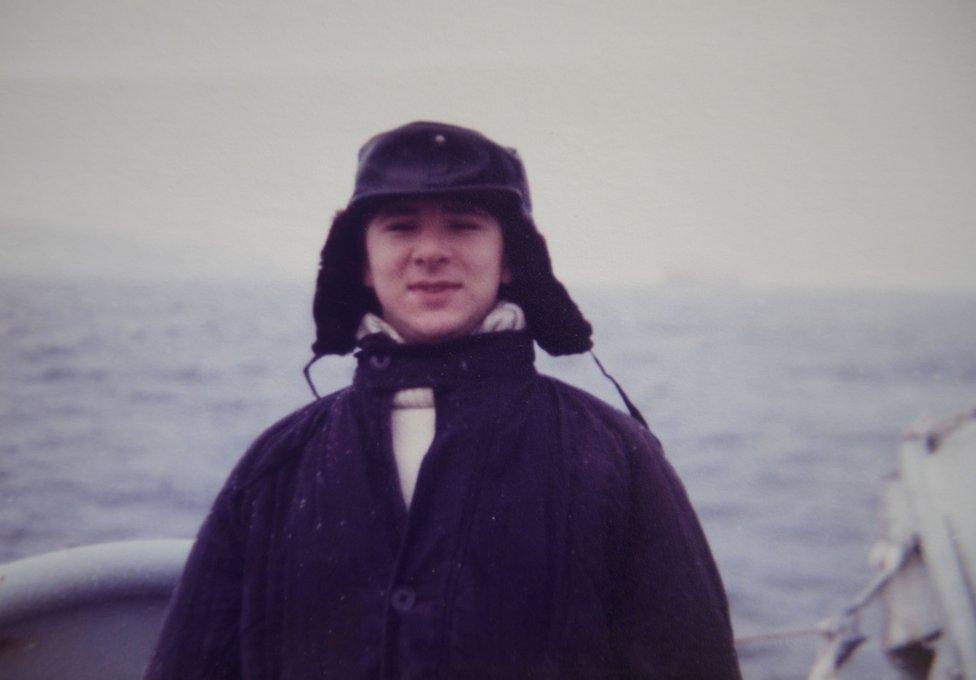
Graham Walker served as a Leading Seaman (Radar) on board HMS Yarmouth during the Falklands conflict
Graham Walker joined the Royal Navy as a 15-year-old school leaver as he wanted to "see the world".
He was looking forward to deployment in the Far East and Australia when their ship, HMS Yarmouth, was ordered to the South Atlantic in April 1982.
Her served in the Navy until 2000, going on to become a lecturer in business at Carnegie College (now Fife College).
Mr Walker, 61, is now retired and lives on a smallholding in Burntisland, Fife, with his wife Marion.
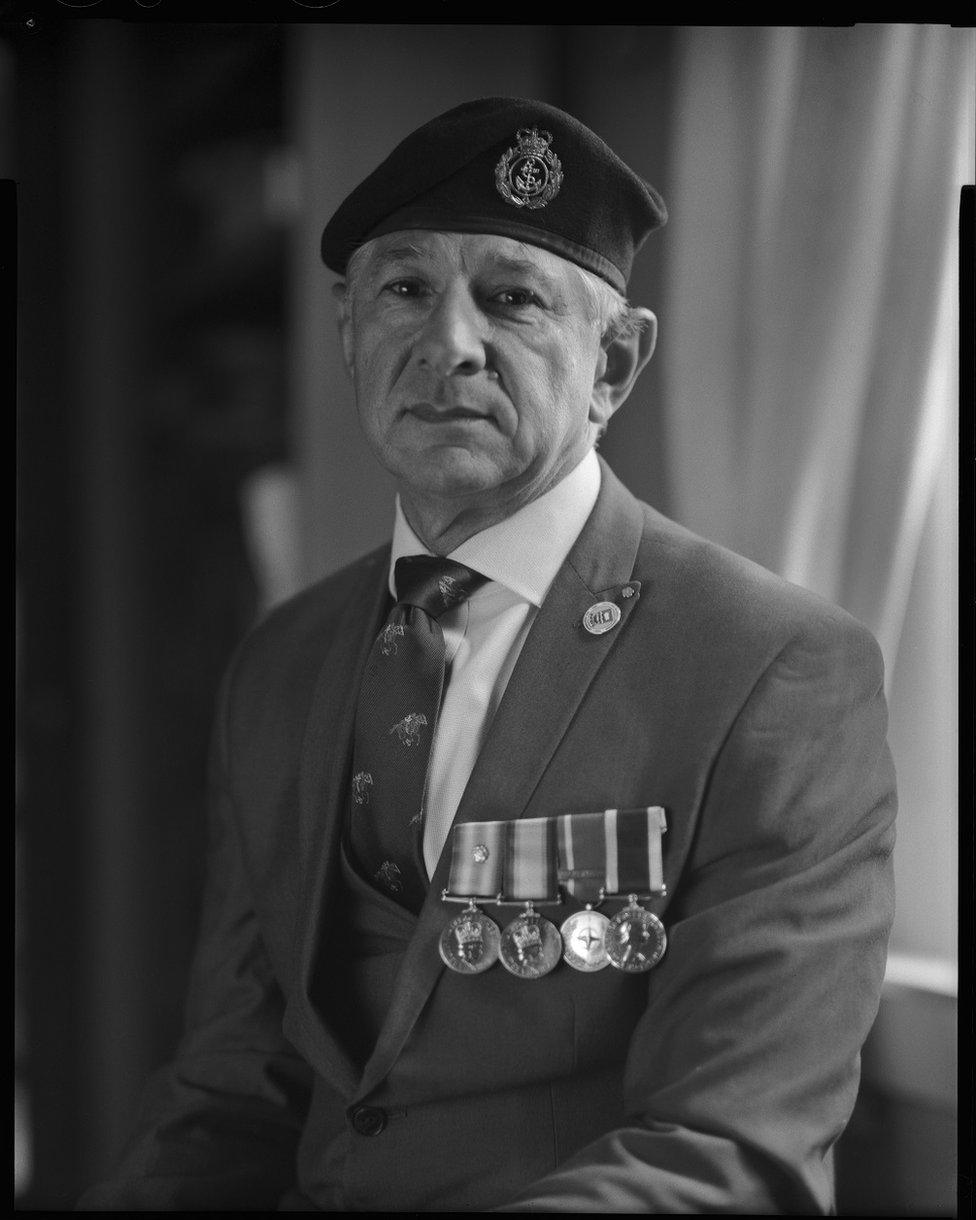
Mr Walker went on to become a college lecturer
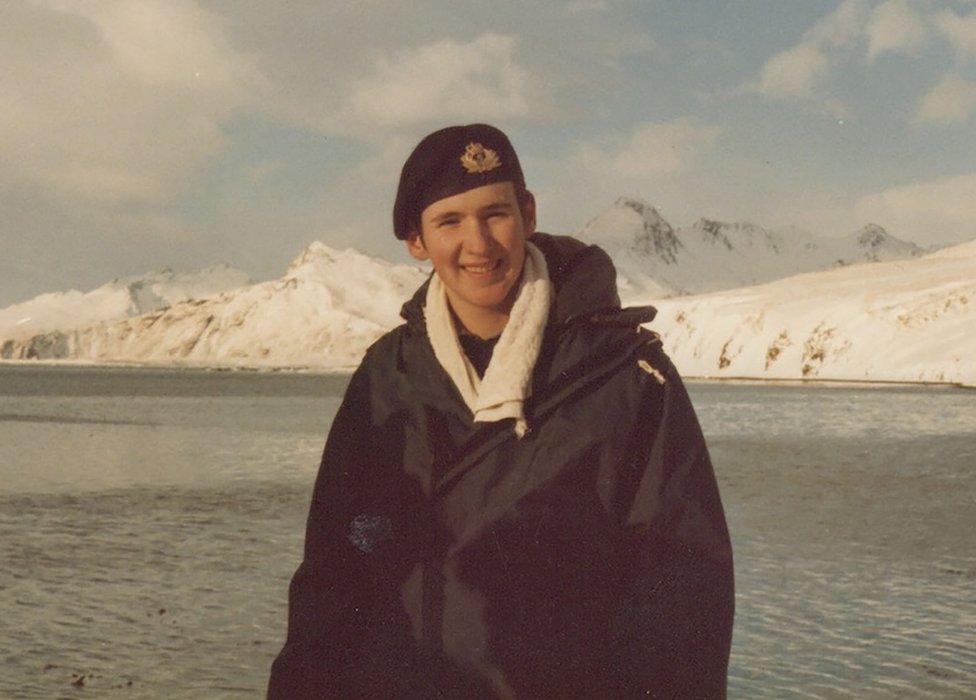
For Mark Beverstock, the Royal Navy gave him a way to study engineering at university while getting paid.
Mark Beverstock also joined the Royal Navy straight from school - it was a chance to get paid to go to university and study engineering.
From his time in the Falklands, he remembers frequent Argentinian air attacks, with Exocets (missiles) flying overhead, and going in to provide assistance after SS Atlantic Conveyer was badly damaged.
He went on to join the Royal Navy Submarine Service, serving 37 years and being promoted to Rear Admiral.
The 58-year-old now lives in Kilmacolm, near Glasgow, with his wife Morag. He is president of Poppyscotland and Legion Scotland
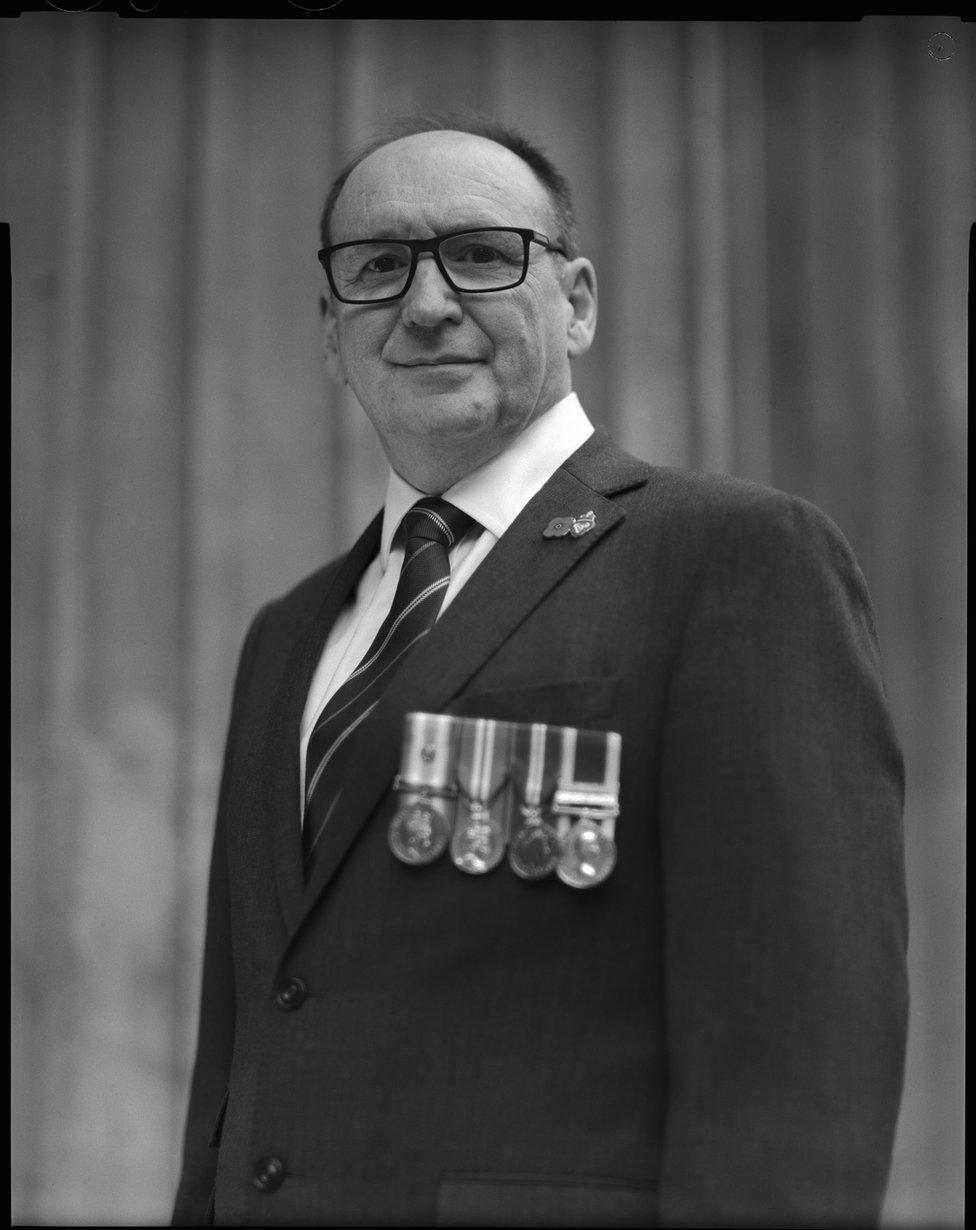
Rear Admiral Mark Beverstock is now president of Poppyscotland and Legion Scotland.
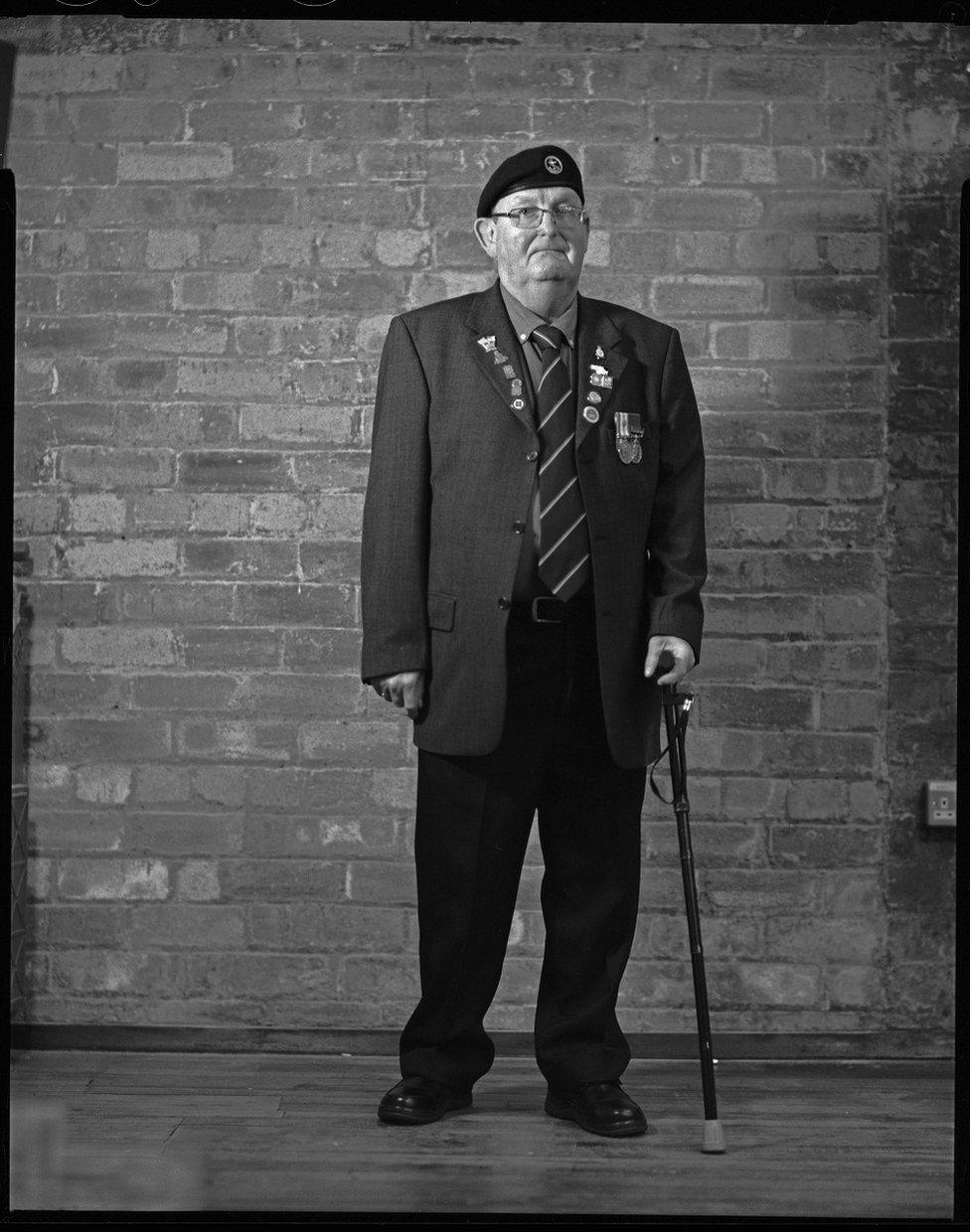
Kenny Duffy said the war was 90% boredom, 10% sheer terror
For Kenny Duffy, 63, from Largs, Ayrshire, the sea was always part of his life, and he joined the Royal Navy shortly after his 16th birthday.
He described the war as "90% boredom and 10% sheer terror". He went on to serve around the world before leaving the Navy in 1990.
He now lives in Edinburgh and works at Lady Haig's Poppy Factory.
Dr Claire Armstrong, chief executive of Legion Scotland, said: "These stunning portraits pay tribute to the incredible efforts and resilience of those who served in the Falklands.
"They encourage us to reflect on the sacrifices they made 40 years ago and remember those who paid the ultimate price.
"Although the conflict lasted for just 74 days, it had a profound impact, with many veterans struggling with the physical and mental scars for decades afterwards."
All images by Wattie Cheung/Poppyscotland.
- Published2 April 2022
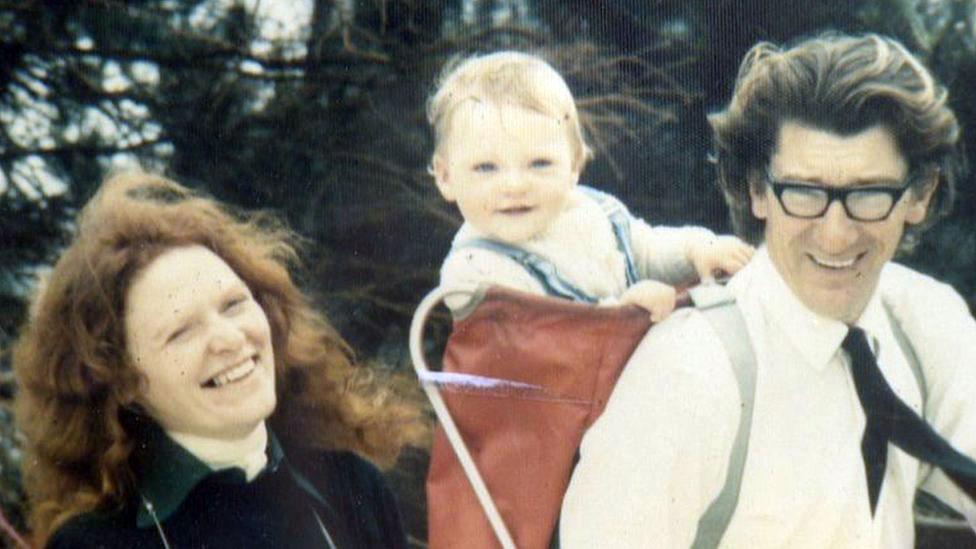
- Published2 April 2022
